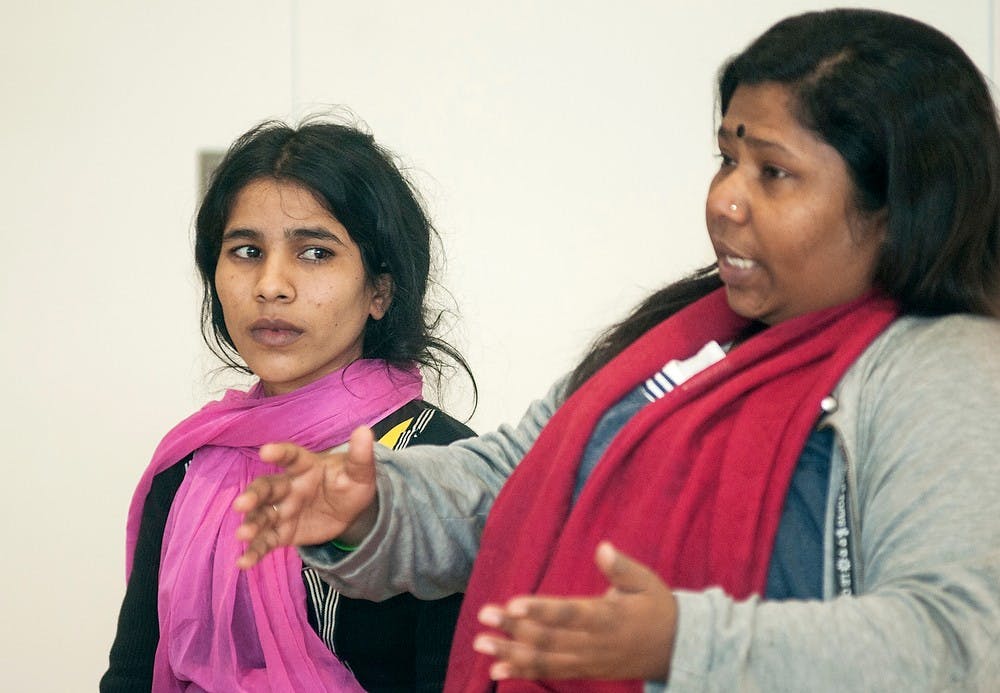A student group is campaigning for MSU to take further action in protecting the human rights of sweatshop laborers who could be facing inhumane conditions.
In an effort to rally students into pressuring administrators for a policy change, the MSU chapter of United Students Against Sweatshops hosted a Bangladeshi garment worker, who shared her story of surviving a factory collapse that claimed more than 1,100 lives.
Through a translator, Reba Sikder told of how she left home for the textile factories at age 14, eventually earning $90 a month for 450 hours of labor. At the Bangladesh factory that collapsed in 2013, structural damage was noted and dismissed, and the workers, Sikder included, were threatened with being fired if they did not return into the building.
What followed, Sikder described, was a horrifying experience of entrapment — hours of searching in the dark for an escape out from under the massive pile of rubble. The survivors were surrounded by their mangled and dead coworkers, and some resorted to drinking bodily fluids to survive.
It is unclear whether the factory produced university-affiliated apparel, but United Students Against Sweatshops International Campaign Coordinator Garrett Strain said MSU should take further steps to make sure a similar disaster doesn’t happen in the factories of the brands they do business with.
For MSU to aid in preventing similar factory disasters, Strain argued the university should require their licensed brands to sign an accord on fire and building safety that would hold them responsible for repairing and renovating factories in Bangladesh with hazardous conditions.
“None of us want to see an MSU T-shirt pulled from the ashes and rubble of the next factory disaster in Bangladesh,” Strain said.
Currently, MSU is a member of two organizations which monitor the factory conditions of licensed brands.
MSU spokesman Kent Cassella said in an email that holding licensees to follow specific practices is not necessarily in the scope of university control.
“We continue to encourage our licensees engaged in manufacturing in Bangladesh to ensure factory working conditions meet appropriate standards,” Cassella said in the email. “At this point, we ?do not plan on changing our code to include any specific initiative, nor do we view participation in any specific initiative a condition for a license.”
For anthropology junior Kate Lang, Sikder’s story lifted ?a veil of relation between the product and who produces it.
“It’s easy to be ignorant ?of the clothes you buy,” Lang said. “You don’t think about where they’re coming from.”
Support student media!
Please consider donating to The State News and help fund the future of journalism.
Discussion
Share and discuss “Bangladeshi worker visits campus to promote human rights” on social media.







